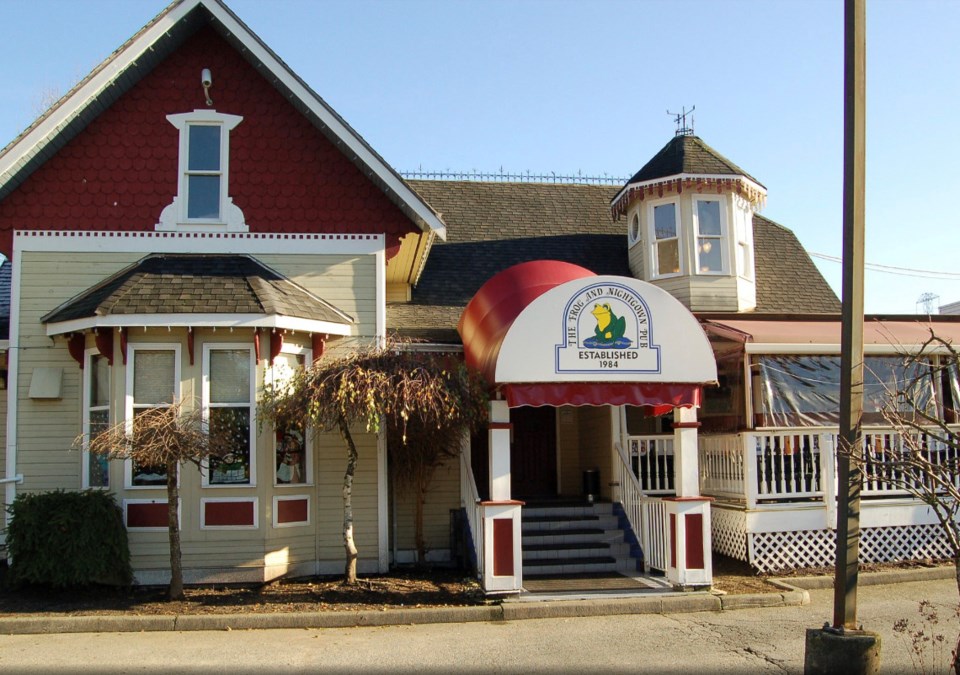It’s last call for a venerable neighbourhood pub in Coquitlam.
The Frog & Nightgown Pub at 1125 Falcon Dr. — more commonly know as just The Frog — announced on its Facebook page Thursday, June 6, that it will closing its doors for the last time on June 18. The adjacent liquor store will continue to operate, but under new management.
“To our customers, you really are the best and thanks for your support,” said the post.
The Frog has been a destination in Coquitlam’s Eagleridge neighbourhood since 1984, beloved for its weekly presentations of live music on Fridays and Saturdays, karaoke Wednesdays and trivia Thursdays. It’s also hosted fundraisers and its meat draw raised $20,000 for the Crossroads Hospice Society last year.
Patrons were quick to react with dismay.
“Sad news for sure,” said one comment on Facebook.
“Just can’t keep anything nice anymore,” offered another.
“This is such a drag,” said another commenter. “Great food, great pub, great entertainment, great staff.”
Some of the musicians who played its stage lamented the loss of a local venue.
“The Bad Pennies loved playing there,” said Jim Reid. “What a great little place it was.”
“Rooster Tooth had a blast playing there,” said another musician, Rick Foster.
“Very sorry to hear this,” said Steve Sainas, whose trio will be one of the pub’s last musical presentations, on June 14 from 8 to 11 p.m.
According to trade publication Foodservice and Hospitality, restaurants and bars in Canada have been facing growing struggles to keep and attract customers, from inflation to lower per-capita consumption of alcoholic beverages to changing behaviours as consumers gather in parks where alcoholic drinks are allowed or just stay home, continuing habits that were ingrained during the COVID-19 pandemic.


